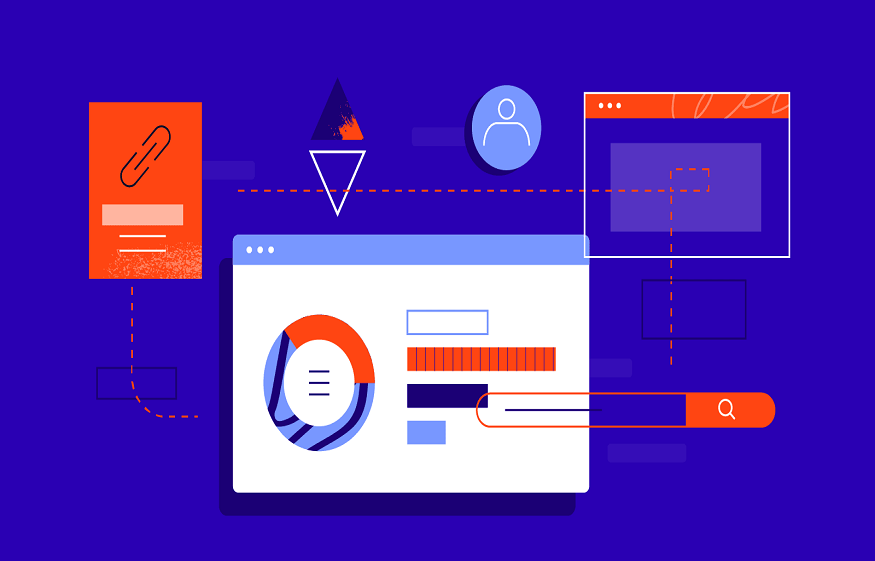There is a thing called ‘Prisoner’s Dilemma’ that hints at our minds around cooperation. Two prisoners are taken into custody and asked to reveal about the other for rewards. Cheating gets one the highest reward, getting cheated the lowest, cooperating leads to a moderate reward. This dilemma spoke of how cooperation is the key to the survival of species. And then a scientist named Robert Axelrod simulated this experiment in a computer. What came as a result was astounding. But why are we speaking of it? Because cooperation and getting social are much related to each other. Getting social leads to building links in our society. And this link-building theory is what fundamentally bases SEO and SERP. This is what, says Digital White Labels, Link Building Agency serves all. But how has this Link-Building evolved since its very start? And where to is it going?
The birth of Link-Building and Link-Building Agency!
Logically, link-building has always been in us for millions of years. We are social beings and we love making links. The prime reason being survival, and the secondary reason being coming in power. This was the basic idea within the algorithms of Backrub. Backrub was the predecessor of Google. It would be bad to call Backrub as a Fetus.
Backrub was using back-links as a factor to rank pages. Because websites were few, they did not create any mess. It was to create a network of websites so people could surf through the internet without feeling lost. Marketers back then were using a technique called WebRings. It was to create a page having links to other websites. There were no link-building companies back then. If we listen to Digital White Labels, Link Building Agency came into question after the Penguin update.
But with the rise of Google as being a giant, people started to sell links. It was the mid and later 2000s. Link was a page ranking factor and people were doing everything possible to gain links. There were no strict guidelines and thus things went off. Bad quality websites with many links were coming up in the SERP results. This worried Google and resulted in an update called Penguin.
The Penguin Update.
People had started abusing its algorithms. Companies were selling links very cheap. The bad thing? Those links were coming from spam websites having no real content at all. It was like messing with a beautiful possibility.
Another strategy being wielded was Link-Farming. People were creating a pool of websites and linking them to each other. It was bad from the perspective of a user coming to search for something. It was like nepotism in the internet world.
Reciprocal links were another ugly side of link-building. They still are. However, they fall irrelevant now. It was the year 2012. It was an update. Penguin update stretched its coded bow and fired these algorithmic arrows towards manipulative link-building.
But then there was this nofollow tag to help people out of this trouble.
Where does link-building stand now?
Doubts always arise around link-building, if it is going obsolete. But know that it rarely will. Link-Building is a part of our evolution and it will stay for long and long enough until some super Artificial Intelligence comes into the play. Even then we cannot say that link-building will not be considered. This idea had emerged from a hypothesis of Rand Fishkin. He said that in the future computers might be able to infer the exact context of a query and the exact meaning of the content. It would then be able to meet content with the query like a lord. Search Engine then will become lord-like. Although we know it is a possibility, it is some very far possibility indeed.
Google is working on A.I., Semantics, NLP, Deep Learning, and User Experience. But they are in their infancy. We never can claim when and how will they evolve. Until that day, link building stays alive and thrive.
Now Link-Building works in a very fine way. It only considers links from a high-quality related website. Pages and Websites now get evaluated based on the trust factor. Authority comes into question too. There stay two sort of evaluation units for authority:
- DA (Domain Authority) takes care of how authoritative a domain is. In brief, it evaluates the domain’s fame and expertise around any subject.
- PA (Page Authority) evaluates the quality of page and the volume it speaks.
If you have any link coming from some website with high PA and DA scores, you have greater chances of ranking higher in SERP.
Any link that is created unnaturally and is spam will be considered black hat and penalized accordingly.
Game Theory, Robert Axelrod, Cooperation, and links!
So what was the result gained from the computer simulation of Prisoner’s Dilemma done by Robert Axelrod? It showed that the tit-for-tat strategy was best in the long run, and it was inducing cooperation the most. We link to each other and create things, and then we share those things with people we know. If that thing is great, it will be bound to spread. This is the very basis of the present link-building algorithms. If you have great content, no wonder some higher-quality website will link to you through some page or article. It is websites talking to each other and growing the internet collectively.
What is the future of link-building?
As far as link-building is concerned, it is going to stay for very long. Though the algorithms around it will surely change. People still use black hat linking techniques. It not only is bad for Google, but it is also bad for our race in totality. Digital White Labels looks toward Link Building Agency as a sort of promoter of white-hat link-building techniques. They do cost some, but they refine the search process.
Link-Building was looked toward with frowns back in 2011. And there were reasons too. But now is considered good if done in a fair way. The purpose of Google is to provide quality to the users, to ease them with solutions. If your website does not have good content, they will exit back soon, and this will hint Google about the quality of your website. Suppose you visit Digita lWhiteLabels.com to read something about SEO, but there is nothing except redundant articles stuffed with keywords — you’ll soon exit from their website. This exiting leads to a greater bounce rate, and bounce rate is a direct ranking factor.
It will get refined using higher computing powers, A.I., and deep learning. The future of link-building seems fair as for now unless people exploit it more and more often






